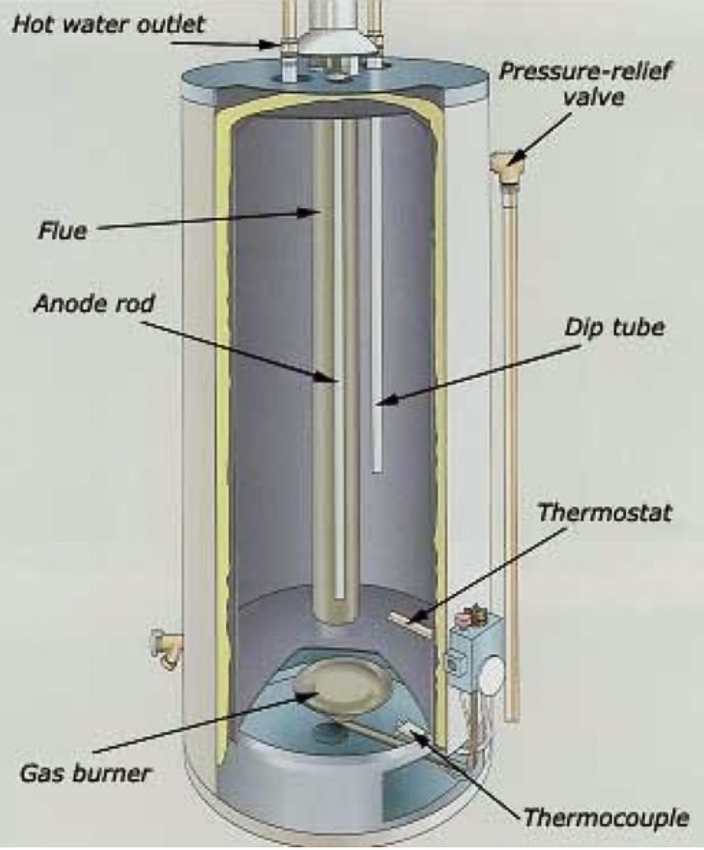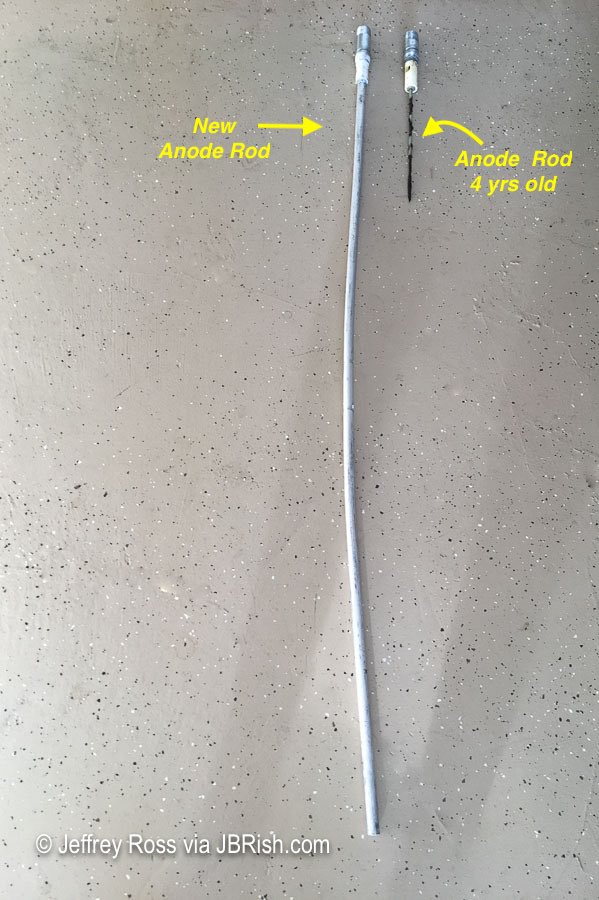I can’t tell you how many times I have replaced hot water heaters due to failures of the liner and/or leakage. I was always puzzled by the fact we can send someone to the moon and return them safely, but we can’t (or should I say won’t) manufacture a hot water heater to last multiple decades. I would actually shoot for a life time, but I don’t want to be too greedy.
Anyway, four years ago I replaced a hot water heater. I was told to expect that it would last between 6 and 8 years. I recently had my water softener serviced and the technician climbed to the top of my hot water heater. I had never seen my technician do that before!
I asked what he was doing since this had never been done and he said: “I’m going to check your anode rod.” I almost remained silent not wanting to sound too ignorant, but I couldn’t help myself. I asked him what the anode rod did.

Picture Via
He told me to wait a minute and he brought in a brand new anode rod from the truck and put it on the floor of my garage. Then he retrieved the anode rod from the hot water heater and put it next to it.

When new, these should be the same size.
That’s how much has been eaten away over four years.
He explained that the old anode rod was once the same size and over the years, it had gotten eaten away. He quickly added that this was a good thing and it was part of the grand design. The anode rod draws chemicals out of the water and they cling to the rod and cannibalize the anode instead of rusting the hot water heater.
The anode rod is the most important factor in determining the life of your water heater. An anode rod is a steel core wire surrounded with one of three different metals. These metals include aluminum, magnesium, and zinc. The rod is screwed into the top of your water heater and protects your water heater from rusting.
https://www.aricoplumbing.com/waterheater-anode-rods
I had never heard of this before and wondered why. Perhaps the hot water heater installers didn’t want us to know. It was further explained that every hot water heater has one of the sacrificial anodes (cool term).
Bottom Line: The smaller the anode rod over time, the more rust it can keep from corroding your hot water heater tank. I now have a maintenance schedule to check it every two years.